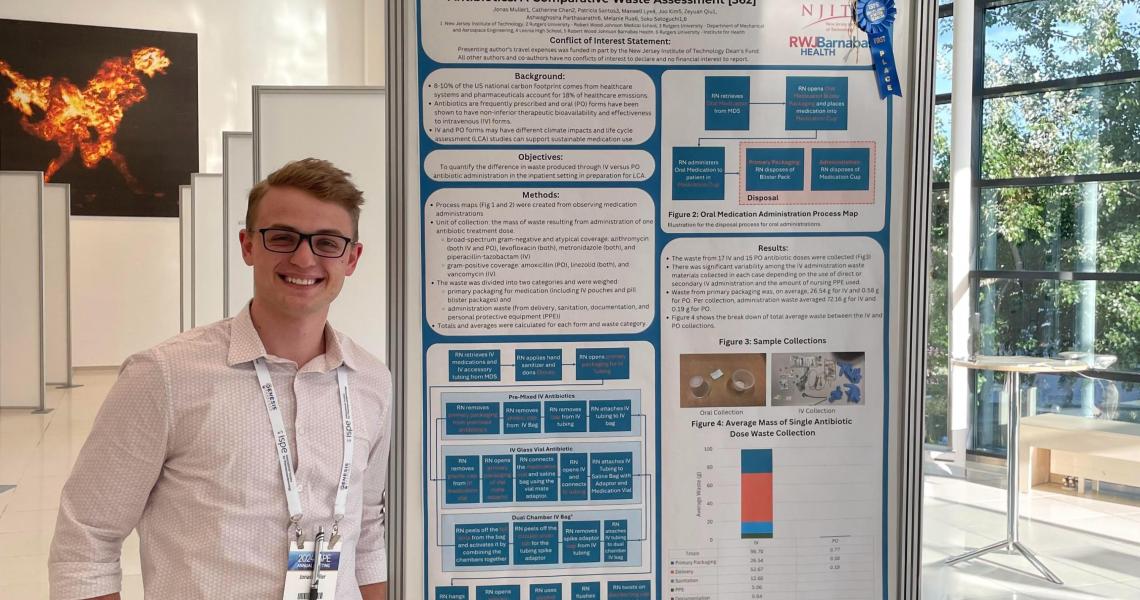NJIT Undergrad Earns Acclaim Abroad for Antibiotic Waste Research

Biochemistry major Jonas Muller ’27 has earned plaudits abroad this summer after unveiling surprising findings on the environmental impact of antibiotic drugs during a poster competition at the International Society for Pharmacoepidemiology (ISPE) annual conference — one of the world's premier events in drug safety research.
Muller recently traveled to this year’s conference site of Berlin to deliver his poster presentation, "Climate Impact of Intravenous versus Oral Antibiotics: A Comparative Waste Assessment," which was judged as one of 20 winners from more than 1,200 posters presented between Aug. 26-28.
"I was one of the youngest students at the ISPE conference … it was an incredible experience to be a part of,” said Muller. “I wasn’t expecting the judges to select my presentation as the winner in its category, especially given the caliber of research there.”
“Our research group’s work stood out because of its environmental focus, whereas most research presented seemed to focus on drug effectiveness,” added Muller. “We’ve shown, through data, just how much waste is produced when drugs are delivered to patients intravenously. It’s fairly shocking, so I can see how it would attract attention.”
In January, Muller joined researchers from Rutgers Robert Wood Johnson Medical School to study the difference in environmental waste produced from intravenous (IV) and oral (PO) antibiotic therapies after being led to the project by his mentor Zeyuan Qiu, interim chair of NJIT’s Department of Chemistry and Environmental Science and professor of environmental science and policy.
The nine-member team would reach an unexpected discovery — that IV antibiotics generate over 120 times more residual waste than antibiotics delivered to patients orally.
“We expected IV antibiotics to produce more waste, but the magnitude of difference caught us by surprise,” said Muller, who is involved in data analysis on the project. “So far, we’ve made our assessment based on sheer weight. IV antibiotics require more supplies and precautions during administration, like gloves and sanitation materials, which adds up fast."
Muller says the team's next steps involve conducting an environmental lifecycle assessment and creating models to study waste generated by IV and oral antibiotics across the U.S., which could provide actionable data for healthcare providers and policymakers to minimize climate impact from such waste.
According to the team’s study, healthcare systems currently account for 8-10% of the national carbon footprint in the U.S. and pharmaceuticals account for 18% of healthcare emissions.
“IV antibiotics have clear benefits in delivery speed, but the risks of infection and the environmental waste they generate can be significant, so we should weigh these factors in deciding how to administer antibiotics," said Muller. “What this study highlights is that perhaps we should consider where we might be overutilizing IV antibiotics. Shifting to oral forms, when possible, could greatly reduce waste.”
About the ISPE Conference and Spotlight Poster Competition:
The ISPE conference brings together leading researchers from around the world to share the latest findings on the safe and effective use of medications in real-world settings. The spotlight poster competition is a highlight of the event, featuring short oral presentations and Q&A sessions with the top-scoring poster presenters as judged by the conference program committee.